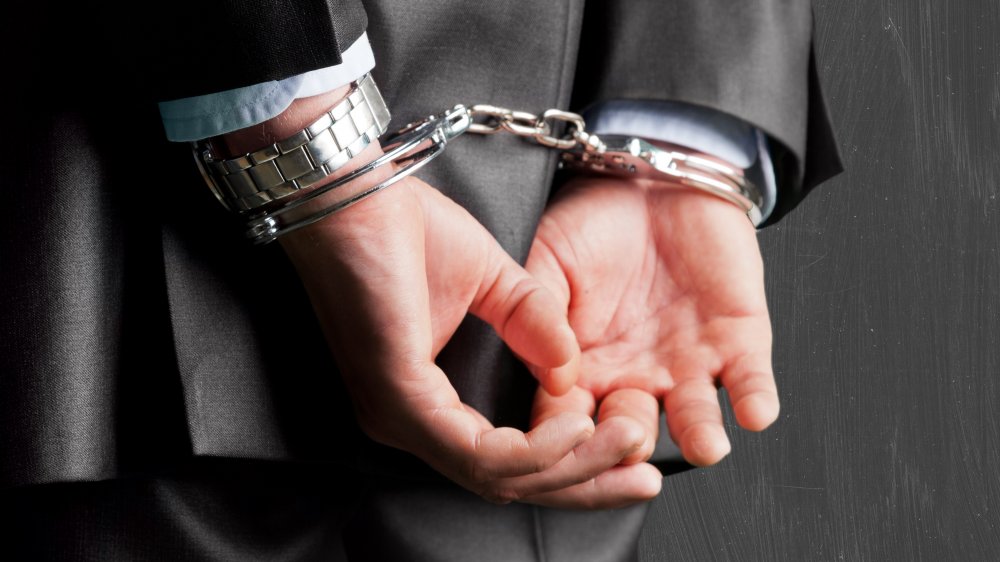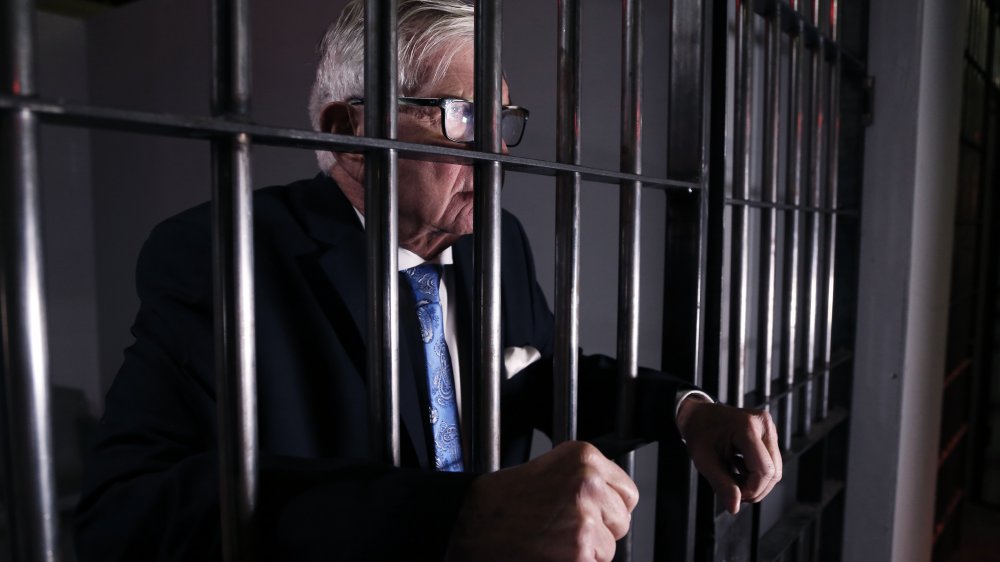What Life Is Really Like In White Collar Prison
Doing time in Alcatraz was far different from an overnight in a county lockup, like Johnny Cash enjoyed. It was true then, it's true now. Federal incarceration ranges from a supermax prison, with higher levels of security (and control) than even a maximum security prison, down to minimum security prison, and everything in between.
Prison is prison. Loss of freedom is a psychic blow to a human being (just ask any teenager who's been grounded), but it's also true that some prisons are less restrictive than others, in part because the inmates aren't considered high risks. To be sentenced to a minimum-security prison — white collar prisons, as they're sometimes called — the inmate has to be considered nonviolent, with a sentence of less than 10 years, says Business Insider.
White Collar Advice, which offers consultation from former white collar criminals, points out that inmates are "beholden to the prison for their happiness and for their needs. I knew early on that my experience in federal prison would be miserable if I obsessed over what I could not control." That, too, is a huge part of the psychological burden of prison: Inmates have little to no control over life's circumstances. "You are herded like cattle," said Bernard Kerik, former New York City Police Commissioner, convicted and sentenced to minimum-security prison in 2010.
Even in minimum-security prisons, there's a mix of inmates
Instead of cells, prisoners are housed in dormitory-like settings — cubicles in large rooms, says Medium. Lack of cells is a positive, but often the areas are extremely noisy, particularly at night. The institutions themselves have gotten leaner and tougher on inmates, at least in part in reaction to an outraged public seeing executives or politicians sent away to what looked like summer camp for adults. Martha Stewart served her five months at "Camp Cupcake" in Alderson, West Virginia. She taught a yoga class and made ceramics.
There is little or no privacy. Correspondence is opened before you receive it. Dennis Kozlowski, the disgraced head of Tyco who was sent away for eight-and-a-third-to-25 years, wrote that he looked forward to "doing what free people do. Close a bathroom door, go to the store, drive a car, open a door, call on a telephone, touch a computer. ... Simple pleasures and the freedom to enjoy them are more precious than you can imagine." The separation from family, especially children who need the guidance of an incarcerated parent, is intensely painful, said Kerik. "You cannot fathom the pain, the heartache, that the system causes parents and their kids. Nobody gets it. Nobody understands it."
Inmates are serving relatively short sentences
The inmates aren't all convicted executives, either. There will be a mix of other federal inmates, including "non-violent" drug dealers serving shorter sentences. No matter who you are, your life is restricted, but by a sort of honor system. The sentences are short, the conditions are not horrific, and so often there are no locked doors, except at night. But if you walk away, that means another seven years on what's already a relatively short sentence.
There will be work details, starting with jobs no one else wants — washing dishes, for instance — and working up to something easier — assistant in the chapel, perhaps, or the prison library. Even when it's over, and the inmate is released, there is the lingering degradation that comes from being an ex-convict in American society. "I've come to realize being sentenced in the U.S. criminal justice system, for anything, is a life sentence," said Kerik. "It's not about the time they give you. You receive a punishment of imprisonment and then a lifelong sentence of collateral punishment."


